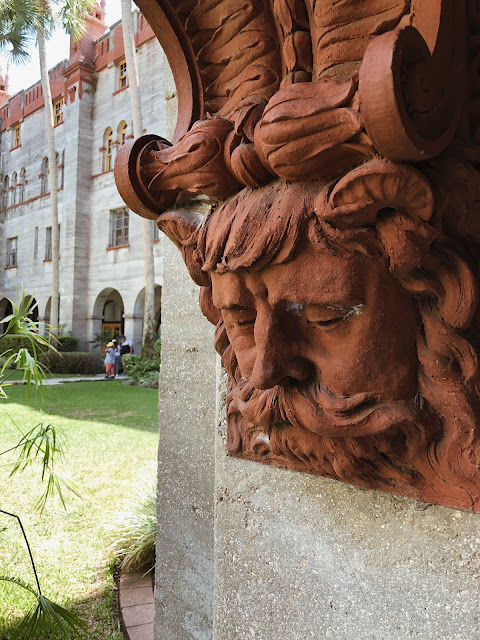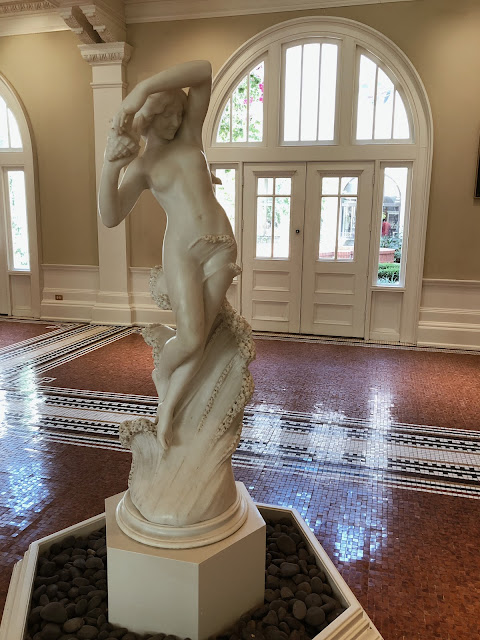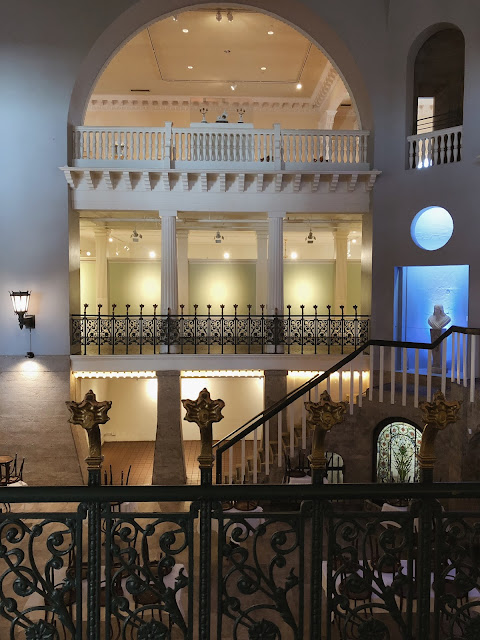Genius, like a thunderstorm, comes up against the wind.
- Søren Kierkegaard, The Journals
Your knowledge about something might be false, and not actually knowledge. You might think it to be true and you hold onto it as it it were total truth, but you might not be correct. Have you considered that? Where are you getting your information to form that knowledge and belief? Does it come from the news, movies, tv, social media, chit chat? What about books? Previous thinkers? Scripture?
I've been edging (dangling, really) along the rim of the deep end of philosophy for years. Interestingly, I have never taken a philosophy class (except one time, back in January 2013, when I was staying with a German friend who was studying at Yale, we snuck into a philosophy class staying the whole class and I was completely fascinated. The professor asked who we were at the end of class, and the story was that I was a prospective student and she was a current student interested in philosophy. This was the epitome of nerdy thrill for me. Defying the rules in the name of learning to be in a class at Yale). In the study of philosophy, the questions asked begin with defining knowledge. How do we know something is true? There is a difference to something being true and our knowing something to be true. The questions of knowledge change the way I think about it.
It makes me think about how we all think. Where does the "truth" come from for most people? Is it something just accepted without second thought? I hesitate to say we need to think for ourselves because I don't want it to seem like it should be a selfish thing, for the idea of "ourselves" looks inward, but rather we should hold an independent thinking that looks at all the questions and tries to research and figure out what is the best answer that lines up with following God. Like sheep, we humans have the tendency to follow the crowd, lead by big leaders or powerful voices, without thinking, just following and mimicking.
Something in me has always resisted this tendency to just follow without thinking. From a young age, I felt this, and usually went the other way from the crowd, which meant the reality was I was often left out and didn't quite fit in during those tough years of middle and high school. I felt okay with it, though. I don't remember it upsetting me too much, because I knew there was something better to explore in thinking independently with my own thoughts.
So it makes sense that these tastes of philosophical thinking appealed to me as I stumbled into them through various books and ideas, most likely finding their beginning with Søren Kierkegaard. In high school and college I frequented the Selby Public Library in Sarasota, which is a grand white, beautiful library downtown, and they have a "friends of the library" bookshop, which is where I have picked up a wonderful array of books over the years. I am pretty sure this is where I picked up my copy of A Kierkegaard Anthology (a lovely Modern Library clothbound hardback in a dark burgundy shade) not knowing where this introduction and $1 would take me.
I thumbed these pages, dipping into the Danish Christian philosopher's various selections of texts that this anthology contains. I did not understand much of it, but I would read and re-read the parts that were reaching into a depth I could just barely put my toes into, and then I would set it aside, and come back to it, again and again over the years. Each time grasping a tiny bit of what his genius mind was pondering. I have re-visited this book so many times over the years, I've lost count.
In those early years I underlined lines that made me ponder as I never had before (a few examples):
- The stone which was rolled before Christ's tomb might appropriately be called the philosopher's stone because its removal gave not only the pharisees but, now for 1800 years, the philosophers so much to think about. (The Journals)
- ...that God has absolutely nothing obvious about Him, that God is so far from being obvious, that He is invisible. It cannot immediately occur to anyone that He exists, although His invisibility is again his omnipresence. (Postscript)
- We are all so much more apt to think about discovering evil than about discovering good. (Works of Love)
Since then, I have collected and read several more of his full books, studying his life and ways of thinking, and have a better understanding of who he was and what he believed. He was my first dip into philosophy, and I think will be a forever favourite. However, I have much more to learn and read on a wider scale. It is, after all, a life long learning experience we get to indulge in - searching for answers to the mysteries of life.
The analogy between faith and the ethical is found in the infinite interest, which suffices to distinguish the believer absolutely from an aesthetician or a thinker. But the believer differs from the ethicist in being infinitely interested in the reality of another (in the fact, for example, that God has existed in time). (Postscript)
















